Do your lithium ion batteries leak?
Lithium ion batteries are increasingly used in a variety of devices due to their high energy density and low self-discharge. Although these batteries offer many advantages, there is one potential disadvantage: lithium batteries can leak.
First, you have to consider that a battery is like a tiny fuel tank in which a chemical reaction of lithium ions takes place. As the components of this tank interact, electricity is generated through self-discharge or use. The liquid electrolyte decomposes, releasing hydrogen. And as we all know, gases create pressure. This is why the acids in the battery leak out.
Table of Contents
Do your lithium ion batteries leak?
Lithium batteries rarely leak. Although, as with all batteries, there is a small chance that they can leak, it is important to take precautions to prevent leakage.
Also, check the capacity of rechargeable batteries to ensure that your device can handle the voltage generated by the battery or that the voltage generated by the battery you are using is suitable for your device.
You can power your devices with a lithium battery. Even if you leave your devices plugged in for a long period of time, the batteries will not be damaged. You will not notice any changes in their functioning. Alkaline batteries vent when exposed to pressure and moisture, but lithium batteries do not.
Lithium batteries are safe as long as you take the necessary precautions to prevent leakage.
Because of their light weight and long-lasting performance, they are becoming more common. Under natural conditions, lithium batteries do not leak. However, they must be stored in a dry and cool environment with approximately 50% to 70% of the charge remaining.
Types of lithium batteries that tend to leak
There are several types of lithium batteries, and each of them has a risk of leakage if not handled carefully.
Lithium-ion batteries are the most popular type of lithium battery. They are used in cell phones, laptops, and electric vehicles. While they are very powerful, they are also very fragile. A drop or shock can cause them to shatter and leak.
Lithium polymer batteries are similar to lithium-ion batteries, but they are made with different electrolytes. They are commonly used in medical devices and electronic cigarettes. Like lithium-ion batteries, they are fragile and can leak if damaged.
Lithium iron phosphate(lifePO4) batteries are a newer type of lithium battery. They are made of iron instead of cobalt, which makes them less likely to leak. However, they are not as powerful as other types of rechargeable batteries and do not last as long.
Lithium-sulfur batteries are the newest type of lithium battery. They are made with sulfur instead of lithium, which makes them more environmentally friendly. They are also less likely to leak than other types of lithium batteries.
How does lithium-ion battery leakage occur?

There are several types of lithium batteries, and each of them has a risk of leakage if not handled carefully.
Lithium-ion batteries are the most popular type of lithium battery. They are used in cell phones, laptops, and electric vehicles. While they are very powerful, they are also very fragile. A drop or shock can cause them to shatter and leak.
Lithium polymer batteries are similar to lithium-ion batteries, but they are made with different electrolytes. They are commonly used in medical devices and electronic cigarettes. Like lithium-ion batteries, they are fragile and can leak if damaged.
Lithium iron phosphate(lifePO4) batteries are a newer type of lithium battery. They are made of iron instead of cobalt, which makes them less likely to leak. However, they are not as powerful as other types of rechargeable batteries and do not last as long.
Lithium-sulfur batteries are the newest type of lithium battery. They are made with sulfur instead of lithium, which makes them more environmentally friendly. They are also less likely to leak than other types of lithium batteries.
Overcharging
When lithium batteries are overcharged, the electrolyte inside begins to decay. This process produces gases that can escape from the battery and cause it to swell. If the pressure gets too high, the battery can burst and leak.
To prevent this, electric vehicles and LEVs are equipped with an overcharge protection circuit that interrupts charging when the battery is full. This prevents the battery from being overcharged, which can lead to battery leakage.
Damages
If a lithium-ion battery is damaged, e.g. by being dropped or punctured, it may also leak. The damage can cause the electrolyte to leak and mix with the other parts of the battery, causing a chemical reaction and leakage.
Most of the best lithium battery manufacturers perform drop tests to avoid any kind of damage that can cause the battery to leak. Drop tests are used to determine the structural integrity of a battery and its ability to withstand an impact that results in damage. When you buy from Tritek Battery, you can rest assured that your battery will not leak.
Manufacturing Defects
In some rare cases, a manufacturing defect can cause leaking batteries. This is usually due to a problem with the seals that hold the electrolyte in the battery. If the seals are not manufactured properly, the electrolyte can escape and leak.
Buying new batteries from a reputable source can prevent this problem. Some of the outstanding lithium cell battery manufacturers with quality products are CATL, LG, Sony, Panasonic and Samsung.
Temperature
If a lithium battery gets too hot, it can also leak. Extreme temperatures can degrade the electrolyte and cause it to leak from the battery. Therefore, it is important to store lithium batteries in a cool, dry place. Follow the lithium battery manufacturer’s storage instructions to avoid battery leakage.
How to avoid lithium battery leakage

There are several types of lithium batteries, and each of them has a risk of leakage if not handled carefully.
Lithium-ion batteries are the most popular type of lithium battery. They are used in cell phones, laptops, and electric vehicles. While they are very powerful, they are also very fragile. A drop or shock can cause them to shatter and leak.
Lithium polymer batteries are similar to lithium-ion batteries, but they are made with different electrolytes. They are commonly used in medical devices and electronic cigarettes. Like lithium-ion batteries, they are fragile and can leak if damaged.
Lithium iron phosphate(lifePO4) batteries are a newer type of lithium battery. They are made of iron instead of cobalt, which makes them less likely to leak. However, they are not as powerful as other types of rechargeable batteries and do not last as long.
Lithium-sulfur batteries are the newest type of lithium battery. They are made with sulfur instead of lithium, which makes them more environmentally friendly. They are also less likely to leak than other types of lithium batteries.
Store lithium batteries in a cool and dry place
Storing your lithium batteries in a cool and dry place will extend their life and prevent them from leaking. The ideal temperature for storing lithium batteries is between 0°C and 25°C (32°F and 77°F).
Don’t overcharge
If you overcharge your lithium batteries, they can leak, so be sure to avoid this. If you use a charger for lithium-ion batteries, make sure it has an overcharge protection function to prevent this.
Periodical inspection
Regularly checking your lithium batteries for signs of damage or defects is a good way to prevent battery leakage. If you notice any damage such as cracks or holes, you should replace the battery immediately.
Keep leaking battery away from metal objects
Keeping your lithium batteries away from metal objects can help prevent them from being damaged and leaking. This is because metal objects can conduct electricity, which can cause a short circuit and damage the battery.
Use the right battery type
Using the wrong type of battery in your device can cause it to leak. So make sure that you are using the right type of battery for your device. For example, if you are using a lithium-ion battery, make sure it is compatible with your device.
Do not puncture or drop your batteries
Be careful not to puncture or drop your lithium batteries, as this can easily damage them and cause them to leak or damage equipment.
Carefully follow the manufacturer's instructions
By carefully following the manufacturer’s instructions, you can help prevent your lithium batteries from leaking. Don’t try anything you’re not sure about, and if in doubt, consult a professional. Buying cheap batteries from an unknown source is not worth the risk.
By following the tips above, you can help your lithium batteries last a long time and not leak.
Dealing with a leaking lithium battery
If you have a leaking lithium-ion battery, you need to replace it immediately to avoid damage to your equipment or injury. Here is what you need to do:

Remove the battery from the device
If you suspect battery leakage, remove it from the device immediately. If it is not possible to remove the battery, turn off the device and disconnect it from any power source.
Proper dispose of the battery
Proper disposal of a lithium battery is important to avoid harmful leakage into the environment or damage to the device.
Replace the battery pack
If you have removed and properly disposed of the battery, you must replace it.
For Light Electric Vehicles Battery Pack:
Since the battery pack consists of well-welded 18650 batteries, do not attempt to replace the cells yourself.
A single defective lithium cell can damage the entire battery pack and other parts of the device. We recommend replacing the entire battery pack. The damaged battery pack cannot be repaired safely.
Battery leakage prevention
To prevent future leakage of the liquid electrolyte, make sure you follow the tips above to prevent your lithium batteries from leaking.
Lithium batteries are generally safe and don’t leak often, but it’s still important to take precautions to prevent them from leaking. Compared to an alkaline battery, Lithium batteries have lower chances of leaking.
This is because they don’t produce as much hydrogen gas when they’re being used. By following the tips above, you can help to ensure that your lithium batteries last for a long time and don’t leak. If you have leaking lithium or alkaline battery, make sure to clean it up immediately and dispose of it properly.




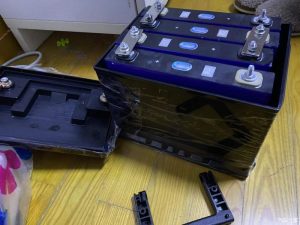
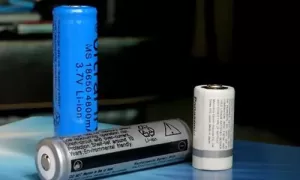
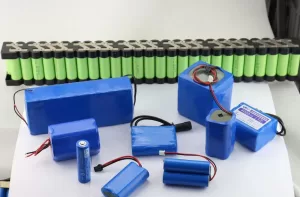
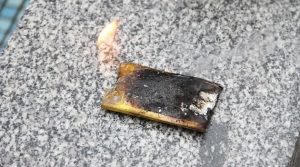
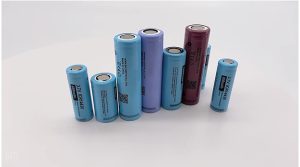
Leave a reply